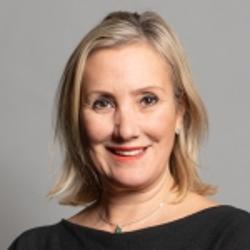Pre-school Education: Standards
(asked on 15th March 2017) - View SourceQuestion to the Department for Education:
To ask the Secretary of State for Education, what her strategy is for raising standards in pre-school education.
The early years foundation stage profile results show year on year improvements for children achieving a good level of development (GLD) by age 5. For the 2015 to 2016 academic year, the results show that 69.3% of children achieved a GLD compared to 51.7% in 2013.
The quality of early years provision is also improving with 93% of settings rated by Ofsted as good or outstanding in December 2016 compared to 74% in 2012. Ofsted’s Childcare providers and inspections as at 31 December 2016 statistics are available at: https://www.gov.uk/government/statistics/childcare-providers-and-inspections-as-at-31-december-2016.
Key to this is a well-qualified workforce with 77% of group based staff in 2016 holding at least a level 3 qualification relevant to childcare and 29% holding at least a level 6. Evidence shows that settings which employ more highly qualified staff are more likely to attract a good or outstanding rating from Ofsted. The Early Years workforce strategy published earlier this month, outlines how we will help employers attract, retain and develop staff to deliver high quality provision. The strategy is available at: https://www.gov.uk/government/publications/early-years-workforce-strategy.
The Government is working hard to ensure parents and children have access to high quality early years education places through the funded 15 hour entitlement for disadvantaged two-year-olds and for all three- and four-year-olds. The Early Years Pupil Premium (EYPP) provides over £300 per eligible child to support better outcomes for disadvantaged three- and four-year-olds and the Foundation Years website includes good practice examples to help providers decide how to use the EYPP to improve outcomes for the disadvantaged children in their care. The EYPP will be kept under review.

